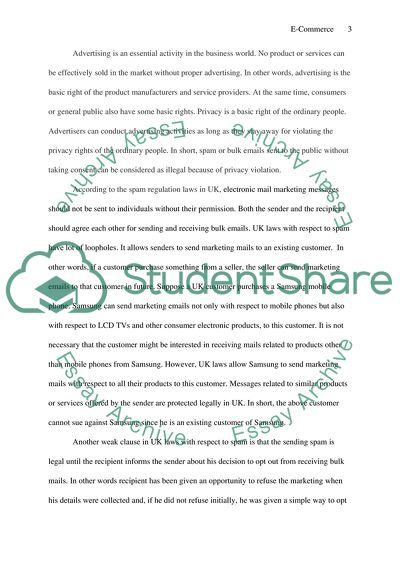Cite this document
(“E-Commerce Law Essay Example | Topics and Well Written Essays - 1500 words - 2”, n.d.)
Retrieved from https://studentshare.org/law/1596681-e-commerce-law
Retrieved from https://studentshare.org/law/1596681-e-commerce-law
(E-Commerce Law Essay Example | Topics and Well Written Essays - 1500 Words - 2)
https://studentshare.org/law/1596681-e-commerce-law.
https://studentshare.org/law/1596681-e-commerce-law.
“E-Commerce Law Essay Example | Topics and Well Written Essays - 1500 Words - 2”, n.d. https://studentshare.org/law/1596681-e-commerce-law.


